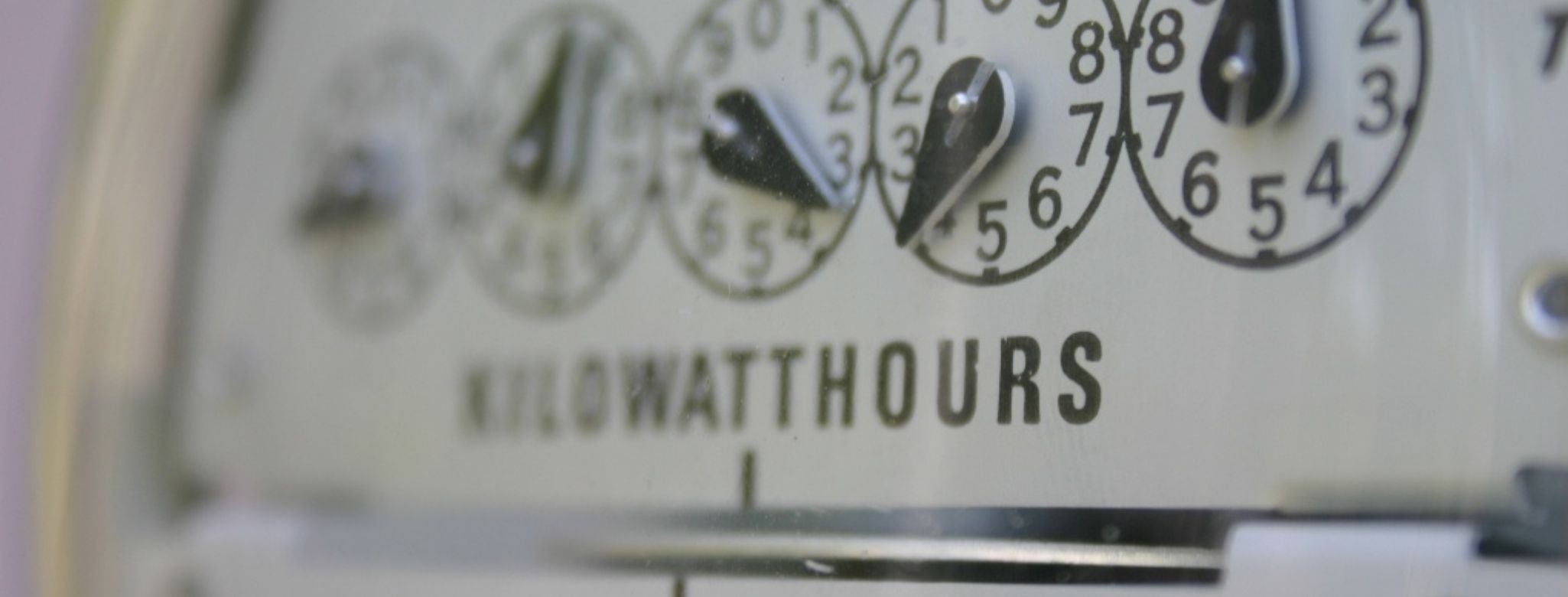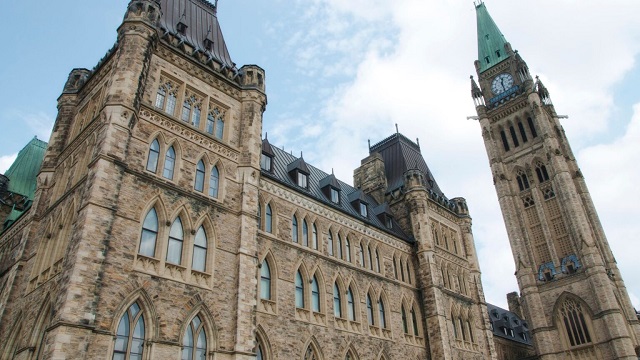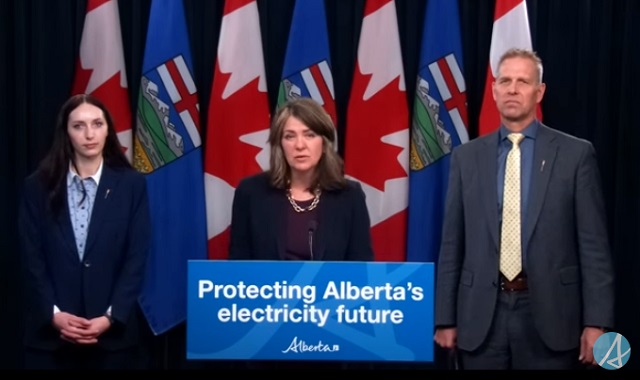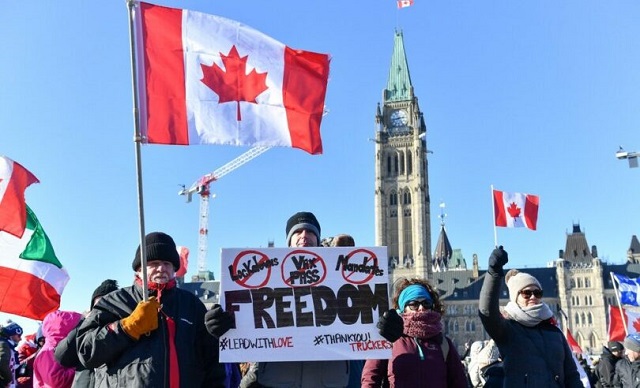Alberta
Utility Deferral Program: Adding Insult to Injury

Open Letter to Alberta MLAs and the Alberta Utilities Commission
July 23, 2021
FOR IMMEDIATE RELEASE
Red Deer – Mountain View, AB
“There are people in need of help. Charity is one of the nobler human motivations. The act of reaching into one’s own pockets to help a fellow man in need is praiseworthy and laudable. Reaching into someone else’s pocket is despicable and worthy of condemnation.” – Dr. Walter E. Williams
Recent news indicating that Alberta ratepayers will be responsible for the outstanding debt owed to gas and electricity providers from 2020’s three-month utility deferral program is beyond frustrating.
There is no question that many Albertans needed to take advantage of this deferral program when the government arbitrarily and unilaterally shuttered their livelihoods in 2020. There is also no question that outstanding debt from this program should not be the responsibility of Albertan ratepayers, many of whom saw significant reductions in income over the past year and a half due to government mandates.
As per a CBC article, Geoff Scotton, a spokesperson with the Alberta Utilities Commission, states “Now we’re in a situation where providers, in good faith, who enabled those payment deferrals, need to be made whole. That’s really the goal here.”
When will Albertans who had their lives and livelihoods deferred for a year and half be made whole?
Instead of the proposed repayment plan, I suggest the following remedies for the outstanding debt:
- The expected debt of $16 million should be split among all sitting MLAs and any other government bureaucrats who advocated for lockdowns and be repaid personally.
- The utility companies, specifically CEOs and senior managers, reach into their own pockets, help their fellow man in need and personally repay the debt.
Families, private sector employees and small business owners have suffered greatly over the past year and a half. Adding further costs to their already limited budgets is not acceptable. Please do better.
Sincerely,
Jared Pilon
Libertarian Party Candidate for Red Deer – Mountain View, AB
https://www.jaredpilon.com/
Alberta
Alberta’s baby name superstar steals the show again

Olivia and Noah continue to reign as top baby names in 2023.

Olivia and Noah are once again topping the lists in Alberta, highlighting the enduring appeal of the names. Olivia maintains a record setting streak as the most popular girls name in Alberta for the 11th year in a row, while Noah remains top pick for boys’ names for a fifth consecutive year.
“Congratulations to those who welcomed a new addition to their family in 2023. Bringing a child into the world is a truly momentous occasion. Whether the name you chose was in the top 10 or one of a kind, these names are only the beginning of the endless possibilities that lie ahead for each child. I look forward to supporting this generation by ensuring Alberta remains a place where they can thrive.”
In choosing names for their new arrivals, parents appear to have found inspiration in a variety of places. Some parents may have been inspired by plants like Ivy, Rose, Juniper, Poppy, Azalea or in nature like Wren, River, Meadow and Flora.
Others may have taken a literary approach with names like Bennett, Sawyer, Juliet and Atticus or been inspired by notable names from religious texts like Eve, Noah, Mohammed and Gabriel.
As always, popular culture may have had an influence through famous musicians (Aretha, Lennon, Presley, Hendrix), athletes (Beckham, Crosby, Evander), and even fairytale princesses (Tiana, Jasmine, Aurora, Ariel, Belle).
Quick facts
- A total of 47,263 births were registered in Alberta in 2023
- Notable changes to the early 2020s lists:
- Evelyn rose to seventh place on the girls’ names list after tying for 19th place in 2022.
- Emily returned to the top 10 list for girls after taking a short break in 2021 and 2022 after a 10-year stretch in the top 10 that started in 2010.
- Violet has cracked the top 10 list for the first time in at least four decades, tying with Ava and Emily in ninth place.
- The top 10 boys’ names remain the same as last year but with a slight change in order.
- Historically, girls’ names that held the No. 1 spot for the longest consecutive time period include:
- Olivia: 11 years (2013-2023)
- Jessica: six years (1990-1995)
- Emily: five years (1998-2002)
- Historically, boys’ names that held the No. 1 spot for the longest consecutive time period include:
- Ethan: nine years (2001-2009)
- Liam: seven years (2010-2016)
- Matthew: five years (1995-1999)
- Noah: five years (2019-2023)
- Parents have up to one year to register their child’s birth. As a result, the list of 2023 baby names and birth statistics may change slightly.
Boys’ names and frequency – top 10 names 2018-23
(In brackets is the number of babies with each name)
| Place | Boy Names (2023) | Boy Names
(2022) |
Boy Names (2021) | Boy Names (2020) | Boy Names (2019) | Boy Names (2018) |
| 1 | Noah (276) | Noah (229) | Noah (274) | Noah (239) | Noah (275) | Liam (225) |
| 2 | Liam (181) | Liam (176) | Jack (220) | Oliver (229) | Liam (234) | Oliver (212) |
| 3 | Oliver (178) | Theodore (173) | Oliver (208) | Liam (206) | Oliver (225) | Noah (199) |
| 4 | Theodore (173) | Oliver (172) | Liam (198) | Benjamin (182) | Ethan (213) | Ethan (188) |
| 5 | Jack (153) | Jack (159) | Theodore (191) | William (178) | Jack (198) | Logan (182)
Lucas (182) |
| 6 | Henry (146) | William (146) | William (174) | Jack (169) | William (185) | Jacob (181) |
| 7 | Lucas (140) | Benjamin (138) | Ethan (162) | Lucas (163) | Lucas (174) | William (178) |
Girls’ names and frequency – top 10 names 2018-2023
(In brackets is the number of babies with each name)
| Place | Girl Names (2023) | Girl Names
(2022) |
Girl Names (2021) | Girl Names (2020) | Girl Names (2019) | Girl Names (2018) |
| 1 | Olivia (210) | Olivia (192) | Olivia (210) | Olivia (236) | Olivia (229) | Olivia (235) |
| 2 | Amelia (145) | Sophia (152) | Charlotte (166) | Emma (184) | Charlotte (188) | Emma (230) |
| 3 | Sophia
(138) |
Emma (149) | Ava (165) | Charlotte (161) | Sophia (181) | Charlotte (175) |
| 4 | Charlotte
(135) |
Amelia (133) | Emma (164) | Ava (159) | Emma (178) | Emily (164) |
| 5 | Emma (133) | Harper (125) | Amelia (161) | Sophia (151) | Ava (161) | Ava (161) |
| 6 | Isla (120) | Charlotte (117) | Sophia (137) | Amelia (145) | Amelia (159) | Abigail (153) |
| 7 | Evelyn (114) | Ava (115) | Isla (135) | Isla (133) | Emily (150) | Harper (150) |
| 8 | Chloe (101)
Violet (101) |
Isla (101) | Abigail (120)
Chloe (120) |
Emily (127) | Abigail (141) | Sophia (146) |
| 9 | Ava (99) Emily (99) |
Lily (100) | Evelyn (119) | Lily (123) | Hannah (137) | Amelia (145) |
| 10 | Hannah (98)
Hazel (98) |
Chloe (92) | Aria (112) | Abigail (114) | Elizabeth (124) | Elizabeth (130) |
Related information
Alberta
Alberta government should create flat 8% personal and business income tax rate in Alberta

From the Fraser Institute
By Tegan Hill
If the Smith government reversed the 2015 personal income tax rate increases and instituted a flat 8 per cent tax rate, it would help restore Alberta’s position as one of the lowest tax jurisdictions in North America
Over the past decade, Alberta has gone from one of the most competitive tax jurisdictions in North America to one of the least competitive. And while the Smith government has promised to create a new 8 per cent tax bracket on personal income below $60,000, it simply isn’t enough to restore Alberta’s tax competitiveness. Instead, the government should institute a flat 8 per cent personal and business income tax rate.
Back in 2014, Alberta had a single 10 per cent personal and business income tax rate. As a result, it had the lowest top combined (federal and provincial/state) personal income tax rate and business income tax rate in North America. This was a powerful advantage that made Alberta an attractive place to start a business, work and invest.
In 2015, however, the provincial NDP government replaced the single personal income tax rate of 10 percent with a five-bracket system including a top rate of 15 per cent, so today Alberta has the 10th-highest personal income tax rate in North America. The government also increased Alberta’s 10 per cent business income tax rate to 12 per cent (although in 2019 the Kenney government began reducing the rate to today’s 8 per cent).
If the Smith government reversed the 2015 personal income tax rate increases and instituted a flat 8 per cent tax rate, it would help restore Alberta’s position as one of the lowest tax jurisdictions in North America, all while saving Alberta taxpayers $1,573 (on average) annually.
And a truly integrated flat tax system would not only apply a uniform tax 8 per cent rate to all sources of income (including personal and business), it would eliminate tax credits, deductions and exemptions, which reduce the cost of investments in certain areas, increasing the relative cost of investment in others. As a result, resources may go to areas where they are not most productive, leading to a less efficient allocation of resources than if these tax incentives did not exist.
Put differently, tax incentives can artificially change the relative attractiveness of goods and services leading to sub-optimal allocation. A flat tax system would not only improve tax efficiency by reducing these tax-based economic distortions, it would also reduce administration costs (expenses incurred by governments due to tax collection and enforcement regulations) and compliance costs (expenses incurred by individuals and businesses to comply with tax regulations).
Finally, a flat tax system would also help avoid negative incentives that come with a progressive marginal tax system. Currently, Albertans are taxed at higher rates as their income increases, which can discourage additional work, savings and investment. A flat tax system would maintain “progressivity” as the proportion of taxes paid would still increase with income, but minimize the disincentive to work more and earn more (increasing savings and investment) because Albertans would face the same tax rate regardless of how their income increases. In sum, flat tax systems encourage stronger economic growth, higher tax revenues and a more robust economy.
To stimulate strong economic growth and leave more money in the pockets of Albertans, the Smith government should go beyond its current commitment to create a new tax bracket on income under $60,000 and institute a flat 8 per cent personal and business income tax rate.
Author:
-

 Freedom Convoy2 days ago
Freedom Convoy2 days agoOttawa spent “excessive” $2.2 million fighting Emergencies Act challenge
-

 Brownstone Institute2 days ago
Brownstone Institute2 days agoA Coup Without Firing a Shot
-

 COVID-192 days ago
COVID-192 days agoWHO Official Admits the Truth About Passports
-

 Alberta2 days ago
Alberta2 days agoProvince to stop municipalities overcharging on utility bills
-

 COVID-1914 hours ago
COVID-1914 hours agoInquiry shows Canadian gov’t agencies have spent $10 million on social media ads for COVID jabs
-

 International2 days ago
International2 days agoUN attacks stay-at-home motherhood as ‘gender inequality’
-

 Business13 hours ago
Business13 hours agoFederal government’s ‘fudget budget’ relies on fanciful assumptions of productivity growth
-

 Energy2 days ago
Energy2 days agoReflections on Earth Day









